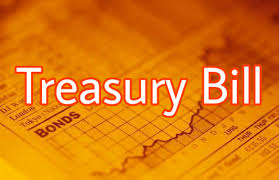
“Government limits treasury bill uptake, prioritizing lower interest rates despite mounting refinancing demands.”
By Toma Imirhe
Last week, Government faced the second major test of its recently introduced strategy of refusing tenders from investors for its treasury bills which exceed its target range of interest rates it is willing to pay them for their subscriptions. At last week’s treasury bill auction investors only tendered GHc4,057.48 million, well below government’s declared target of GHc6,678.00 million, this being their response to government for having used its severely dampened demand for treasury securities financing to force interest rates payable of them down to between 15.4527% for 91 day bills, and 18.6507% for 364 day bills; while 182 day treasury bills attracted an interest rate of 16.2149% at last week’s auction.
However government stuck to its guns of rejecting bids for subscriptions at interest rates above its liking, accepting only the lowest bids, these amounting to just GHc1,692.24 million. This strategy and outcome mirrors the previous couple of treasury bid auctions – in the previous week it accepted just GHc1.69 billion out of a targeted GHc4.39 billion.
But what is surprising portfolio investors is that for two consecutive weeks, government has refused to secure enough new treasury bill financing to refinance maturing bills. A fortnight ago, its uptake was barely 40% of the GHc4.22 billion in maturing bills it had to contend with, and last week its uptake fell to 26% of the GHc6.43 billion it required to refinance maturing bills.
This means that government is openly calling the bluff of investors who are gradually pulling back from buying treasury bills that offer interest rates that are between 450 and 700 basis points below year on year consumer price inflation.
Investors are rather opting to buy up 56 day Bank of Ghana bills, which offer interest rates of nearly 28%, up marginally since the beginning of April after the central bank increased its benchmark Monetary Policy Rate by 100 basis points to reach 28% in late March. Last week alone the BoG sold GHc3.962 billion worth of its bills on Monday and a further GHc2.281 billion on Wednesday.
Financial analysts believe government is therefore taking money from the central bank to refinance its maturing treasury bill obligations, this giving it space to force treasury bill rates – and its consequent domestic debt servicing costs – downward much faster than inflation can fall.
The law requires that government cannot take more than 5%, net, of its previous year’s tax revenues from the BoG but since the computations are only done at year’s end it can afford to exceed that limit during the year as long as it falls back within the limit before December 31 by repaying the appropriate excess back to the central bank.
Meanwhile the BoG’s issuance of its own bills are a key tool in combating inflation through the withdrawal of excess liquidity from the economy and so this strategy (if indeed is what is being applied) suits both the central bank and government itself without breaking any laws and curbs, rather than stokes inflation.
As inflation drops to near or below the treasury bill interest rates government is willing to pay, portfolio investors will come flooding back to that market while the BoG will have less reason to keep issuing large amounts of BoG bills to soak up inflationary liquidity.